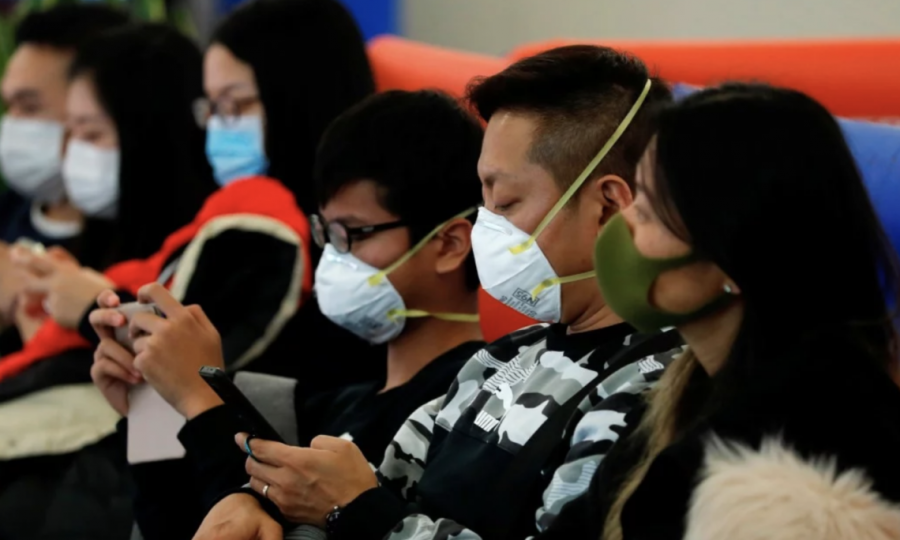Coronavirus outbreak causes ‘panic’ among public
Photo credit: U.S. Embassy & Consulate in Kazakhstan
Several people are seen wearing respiratory masks to protect themselves from infection. The U.S. Embassy in Kazakhstan posted this photo on Jan. 24.
On January 26, The Los Angeles County Department of Public Health confirmed its first cases of the 2019 coronavirus in Los Angeles County. Today there are six confirmed cases of coronavirus in California. All of those infected have been to China or have been in contact with a recent traveler from China. The Center for Disease Control and Prevention (CDC) has reported that there are twelve confirmed cases in the United States. The coronavirus spreads through person-to-person contact.
The advisory against traveling to Wuhan City, China, the origin of the 2019 coronavirus, has been raised by the CDC to a Level 3 travel warning: Avoid all nonessential travel to China. Officials have closed all transport within and out of all cities in Hubei province, where Wuhan is located.
As of today, more than 37,000 people have been confirmed infected with the virus worldwide, and the majority of those infected live in China. The outbreak has already claimed the lives of at least 800 people in China, surpassing the death toll of the SARS epidemic. Only two of the deaths were outside of China, one in Philippines and one in Hong Kong. The virus is a worldwide threat; according to CNN, 25 countries and territories have reported infection.
According to Amira Roess, a professor of global health and epidemiology at George Mason University, the spread of fear often accompanies the spread of a new disease. According to Business Insider, “novel threats raise anxiety levels more than familiar threats.”
“In the early stages of an infectious-disease outbreak much of the panic is “fear of the unknown,” Roess said.
The panic caused by the coronavirus is also affecting members of the Archer community. As health officials try to control the rapidly spreading coronavirus, inaccurate information is also quickly spreading. Junior Gracey Wyles lived in Shanghai, China, during the summer of 2019, and commented on the rapid spread of misinformation about coronavirus.
“Some people who don’t know a lot about the virus have a tendency to make jokes about it. I think the public is worried, similar to have they reacted to the outbreak of the Ebola virus,” Wyles said. “I think people, like me, only read snippets about it and are looking more to the media reaction [than credible sources].”
Senior Siena Mizel said she feels “stress resulting from the outbreak.”
“The spread of misinformation on social media adds a lot of panic,” Mizel said.
Facebook recently vowed to remove misinformation about the virus, such as posts claiming that the government created the coronavirus or that bleach will cure it. The social-networking giant said they will delete these types of posts in a bid to control the inaccurate information.
According to the CDC, symptoms of the coronavirus include runny nose, headache, cough, sore throat, fever and a general feeling of being unwell.
The CDC urges the public to take everyday preventive actions such as staying home when sick, washing hands often and limiting contact with those infected to avoid becoming infected with coronavirus.

Cydney Johnson joined the Oracle as a staff reporter in 2019. She plays volleyball and she is also a member of Peer Support. During her free time she...









